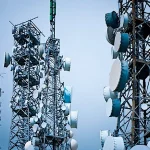The 5 Tech Trends to Expect in Africa in 2023
The future of technology in Africa is an exciting and rapidly-evolving landscape. With a rapidly growing population and a burgeoning middle class, Africa is poised to become a major player in the...

The future of technology in Africa is an exciting and rapidly-evolving landscape. With a rapidly growing population and a burgeoning middle class, Africa is poised to become a major player in the global tech market.

In 2023, we expect to see even more growth and innovation in the African tech sector. As the continent continues to develop and its population grows, the demand for technology and digital services will only increase. This presents a huge opportunity for both African entrepreneurs and international tech companies looking to enter the market.
Here are 5 tech trends we expect to see in Africa in 2023
Increased adoption of artificial intelligence and machine learning technologies.
Artificial intelligence and machine learning are expected to play a significant role in Africa in 2023. In healthcare, AI and machine learning are expected to improve medical diagnoses and treatment options. In the agricultural sector, AI and machine learning are expected to improve crop yields and food security. AI-powered irrigation systems can optimise water usage, leading to more efficient practices.
Continued growth of the e-commerce sector.
The growth of e-commerce in Africa has been significant in recent years. According to a 2019 report by the African Development Bank, the e-commerce market in Africa is expected to reach $75 billion by 2025. This growth is being driven by increasing internet and mobile penetration, as well as the rise of digital payment platforms.
Expansion of high-speed internet and mobile networks.
With more than 600 million mobile phone subscribers on the continent, Africa has one of the highest rates of mobile penetration in the world. In 2023, we expect to see the development of a vibrant mobile app ecosystem, with African developers creating innovative solutions for everything from mobile banking to healthcare.
Development of new digital payment solutions and fintech innovations.
As more and more Africans gain access to mobile phones and the internet, there has been a surge in the use of digital financial services. This has led to the growth of companies like M-Pesa, a mobile money transfer service that has become wildly popular in countries like Kenya and Tanzania.
Increased use of renewable energy sources, such as solar and wind.
Many African countries have low rates of electrification, with millions of people still lacking access to electricity. Renewable energy sources, such as solar and wind, can help improve access to energy in rural and remote areas, often not served by traditional energy grids. This can help to improve the lives of millions of people and support the development of African communities.









No Comment! Be the first one.